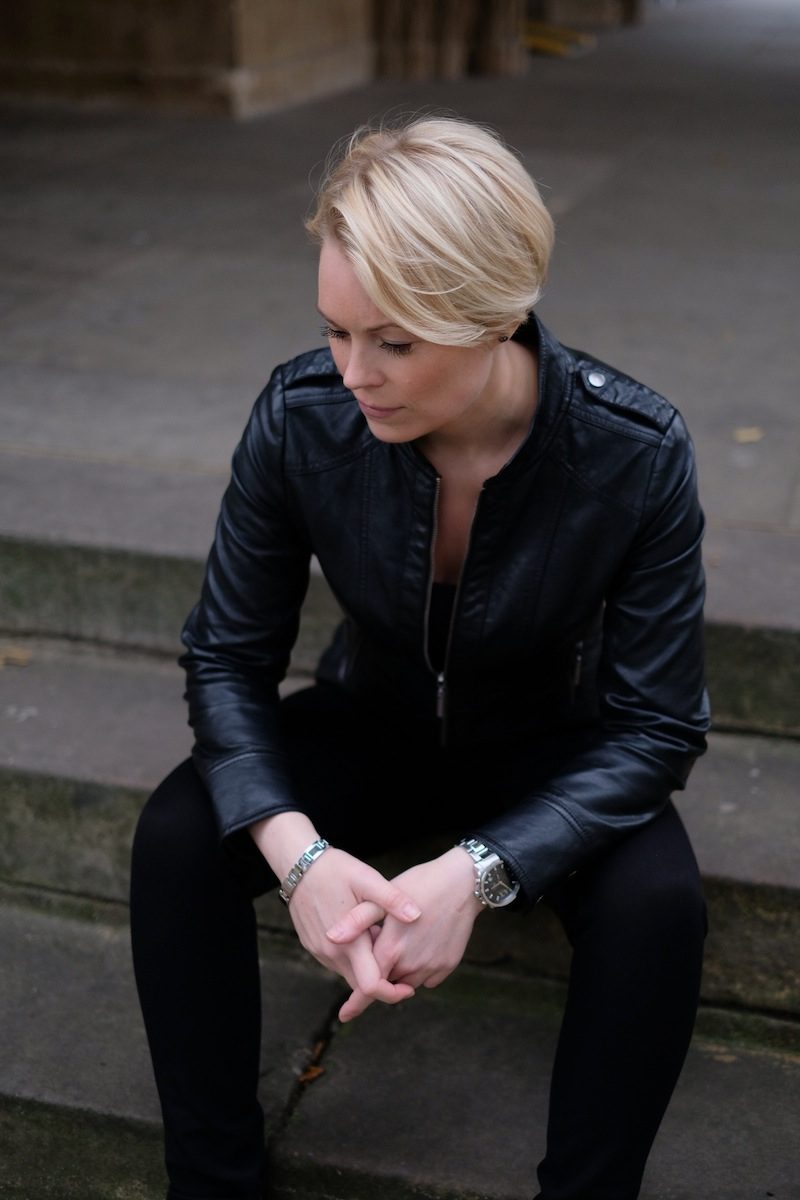The religious commentator tells Carrie Lyell why she’s taking a break from social media
Online abuse. Ask any woman in the public eye who has spent any time on social media is she's experienced it, and she'll reel off stories of sexism and misogyny that will make your eyes water. But ask an LGBT woman, and she'll tell you stories not just of sexism and misogyny, but vile homophobic, biphobic and transphobic abuse too.
Take Vicky Beeching. Just this week, the much-loved DIVA columnist and religious commentator was forced to take a break from social media because of the toll the abuse she was receiving was taking on her health.
Since coming out in 2014, Beeching has regularly received vitriolic tweets and direct messages, but this week it went a step further, with a hateful meme featuring her face shared more than 20,000 times on Facebook.
"I've played music concerts, back when I lived in the USA, to auditoriums of 20,000 people so I can easily visualise what that many people look like – and that's a huge amount to imagine staring you down with hatred," Vicky told me.
Vicky's abuse isn't just online – she was also sent a seven-page handwritten letter telling her to "repent from the sin of lesbianism" – and she says that most of the abuse she receives comes from fellow Christians who she describes as "vehemently anti-LGBT".
"Friendly fire – attacks from people who are supposed to be your own community – is always the most painful for me," says Vicky. "The church is a place I've belonged to since childhood, so it's heartbreaking to now feel unsafe there."
She went on: "I try not to Google my own name, or read the comments below articles I've written, but this week I made the mistake of doing so.
"It's horrible to find hundreds of people slamming everything about you, and sensationalist comments about my imagined sex life and 'what I get up to behind closed doors, now that I'm out. I'm a very private person, so it's horrible to feel like you're discussed as though you're a piece of meat.
"It's very unpleasant to stumble across men saying things like: 'all she needs is the right man with the right dick and we'll soon make her straight' and that they'd happily 'have a go at changing my orientation that way', which just sounds like correctional rape. People say they'd like to see me dead, as then I couldn't continue to spread a message of LGBT equality."
It's easy to dismiss these kinds of trolls as religious fanatics. But I don't that's the problem here. Yes, there are undoubtedly Christians who disagree with Vicky's openness about her sexuality, but the issue of aggressive trolling online goes far beyond religious zealots with an axe to grind.
High profile women and non-binary people have been forced off social media due to harassment, dog piling, rape and death threats, from people of all faiths and none, all for having the gall to exist.
TV presenter Sue Perkins took a break from Twitter last year after rumours circulated that she might be in line to present Top Gear, leading to furious men filling her mentions with horrific abuse for something that wasn't true; she hadn't been offered the job and didn't want it. Jack Monroe is frequently the subject of death threats for their stance on issues including poverty. And lesbian MPs from across the political spectrum, including Mhairi Black and Ruth Davidson, are also frequently the subject of online hate.
Racist abuse is also all too common, and women of colour like Ghostbusters star Leslie Jones are frequently targeted by right-wing trolls, whipped into a frenzy by the likes of Milo Yiannopoulos.
Sometimes this kind of abuse is reported – several individuals have now been prosecuted due to hate speech online, and Twitter does act on rare occasions, banning the perpetrators of the worst abuse. They also responded to DIVA's #No2LGBTHate campaign, promising tools to protect users from hate speech online. But all too often it goes unchallenged.
You might wonder why more women don't speak up. The sad reality is that we've just come to expect it. Vicky told me: "It's just become normal to me. Whether I'm checking Twitter, Facebook, my website's Contact Form enquiries, or my public, physical PO Box address, a slew of it will be nasty, degrading and aggressive."
Some say trolling is harmless. Sad little men hiding behind a keyboard in their parent's house, with nothing better to do. Ignore them and move on. But there are real-life consequences to this online behaviour, and Vicky hopes that by taking some time away from social media, it will serve as a reminder of that.
"People are far more confident online as they can't see the face of the person they are targeting," she says. "They can just type away and don't have to see the consequences. If a person came up and physically punched me in the face, they'd see me cry and see me bruised or bleeding.
"Online abuse means they don't have to face the consequences, but that abuse can feel just as painful as a physical blow to the face."
Vicky's hiatus is not permanent, and she says she'll be back to social media soon. I'm glad – because we can't keep quiet about this any longer. We need to keep existing, and make our voices as loud as possible, online and in real life. Otherwise, those who wish to silence us will win, and another generation of young women will grow up thinking misogyny is just part of life.
